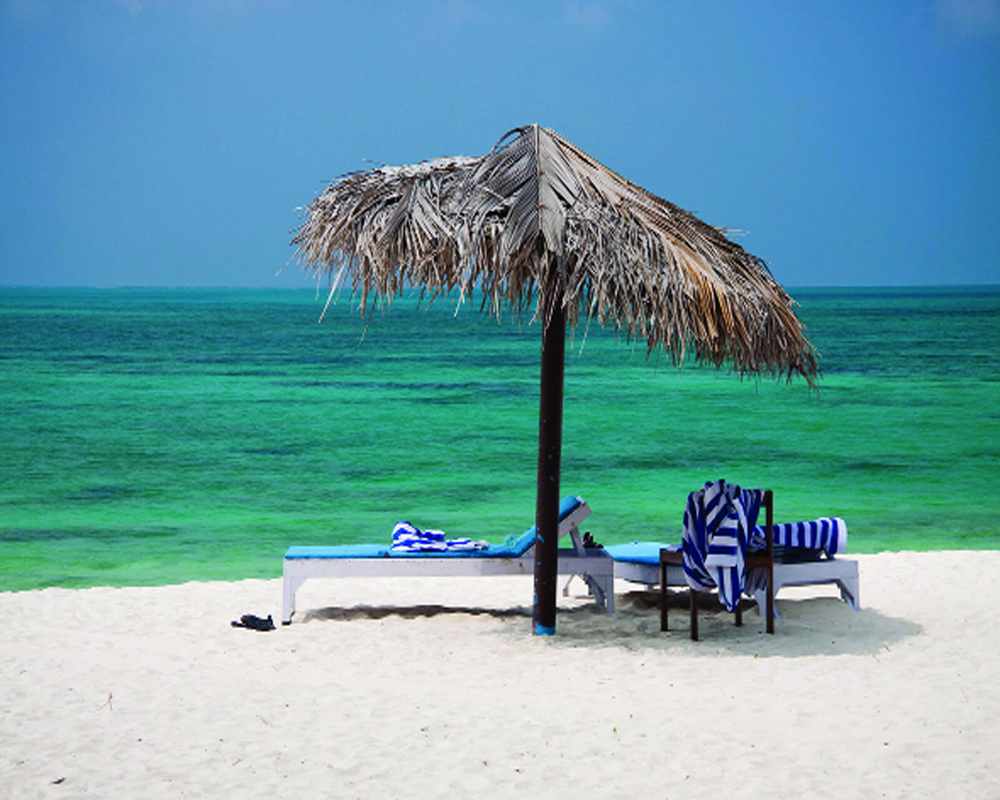The water-stressed islands cannot take either the tourism load or the pollution that the new industries would bring
Lakshadweep, an ecologically pristine island cluster inhabited by 64,000 mostly Malayali-speaking population, finds itself at the receiving end of deteriorating ecological conditions for a variety of reasons. These islands rely on fishing, coir-twisting, and coconut cultivation as drivers of the economy and livelihoods. Tourism is an emerging industry but yet to exploit its full potential as both the local population and the administration are wary of the collateral damage a full-fledged tourism industry can have on Lakshadweep. Even without the tourists, Lakshadweep is slowly losing the battle with climate change thanks to rising pollution levels and controversial political decisions. Over the last few decades, pollution and plastic and sewage waste have caused stress to local biodiversity and contaminated the fresh-water aquifers. In Kavaratti alone, nearly 1.2 million litres of solid waste besides 50,000 litres of untreated sewage are generated daily. They are either dumped along the shoreline or let into septic pits which in turn contaminate groundwater and pollute freshwater sources such as wells. Coastal erosion has anyway been a problem for three decades now. Coral mining activities disturb the deep-sea ecological biodiversity. The islands fall along the maritime route of middle-eastern and south-eastern Asia: there is a steady traffic of oil tankers, cargo, and passenger ships. A Cochin University of Science & Technology report says the sea traffic was dumping untreated waste, oil, and ballast water into the sea. This is in addition to occasional, accidental oil spills such as the X-Press Pearl cargo ship that caught fire near Sri Lanka's western seaboard and sank. Had the ship sunk near Lakshadweep, it would have had tremendous implications for the marine environment as the vessel was carrying 25 tonnes of nitric acid and sodium hydroxide. This toxic cargo of the sunk vessel has now become a maritime ecological disaster for Sri Lanka. Political developments in Lakshadweep are adding a new set of challenges. The recentdecisions of local administrator Praful Khoda Patel to develop Lakshadweep on the lines of Maldives have run into rough weather with the local population, activists, and even the BJP colleagues of Praful Patel protesting against the draft regulations. The proposed regulations included a cow slaughter ban, authority to detain any person without public disclosure for a period of one year and disqualifying anyone having more than two children from holding a panchayat post.
The challenge to the environment comes in the form of powers to take over local lands at a nominal cost in the name of town planning. This is a tunnel vision because the idea is far removed from ground realities. Some of these islands are mostly coral atolls spanning a width of a mere four kilometres and standing barely three metres above sea level. Some are not even half a metre high. The Lakshadweep islands are water-stressed and can take neither tourism load nor pollution industry would bring. The Niti Aayog report for Lakshadweep proposes an astonishing 1,092 new hotel rooms besides floating villas to augment real estate, but no thought has been given to the coral reefs which are already battling bleaching and will now be subject to effluents from the villas. Lakshadweep is fighting serious battles from climate change. In 2019 a small island, Parali in Bangaram atoll, sank due to rising sea levels. Lakshadweep's ecology and people both need to be left alone and any development must not be at loggerheads with the local people. To show the requisite respect to popular opinion, the government can commission an Environmental Impact Assessment (EIA) for the proposed tourism plans and consider the views of the local population and environmental experts.
(The writer is an environmental journalist. The views expressed are personal.)


























